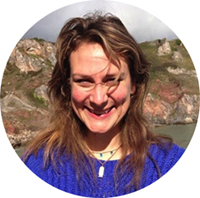Keen to enter the magical world of Harry Potter? Discover the bewitching locations of the boy wizard's adventures and explore these enchanting surroundings.
From the Glenfinnan Viaduct in Scotland's north-west Highlands to the Forest of Dean in Gloucestershire, we reveal where Harry Potter was filmed and the real-life settings of spell-binding scenes from Harry Potter and the Philosopher's Stone all the way through to Harry Potter and the Deathly Hallows...
Harry Potter filming locations
Glenfinnan Viaduct, West Highland Line
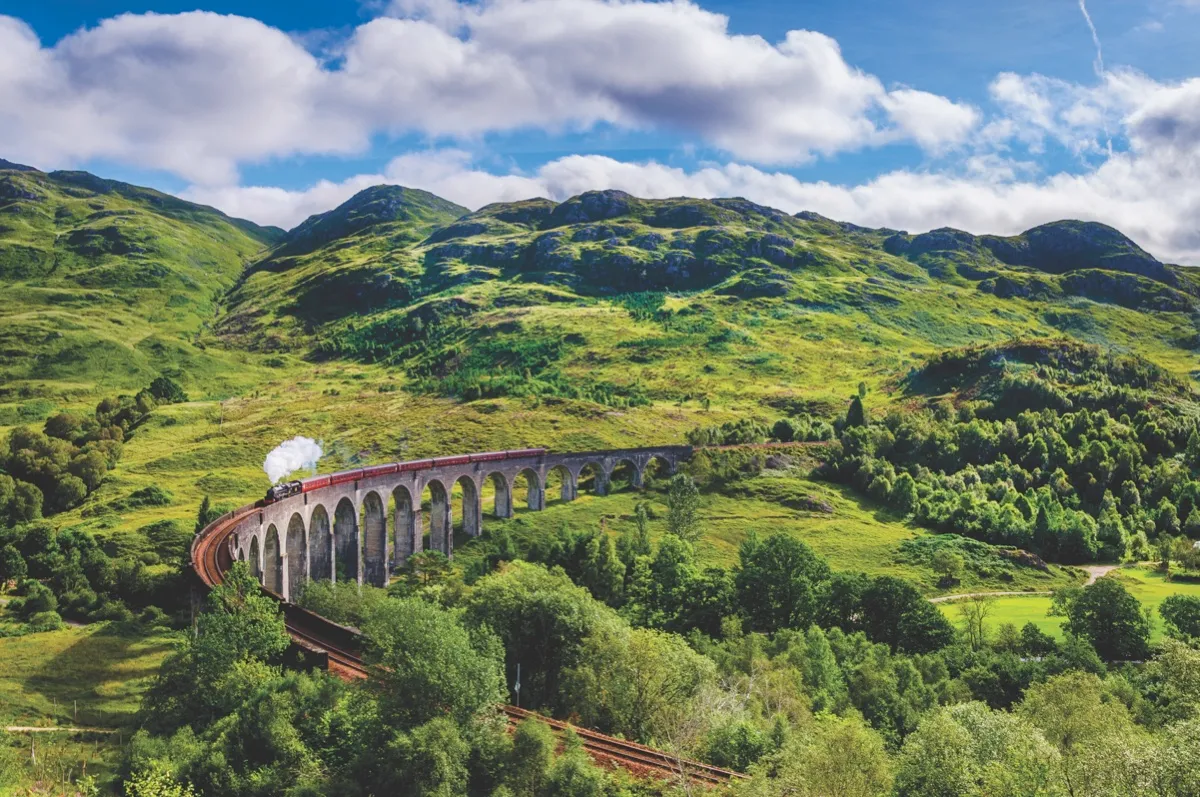
The elegant bridge you see the Hogwarts Express puff across in no fewer than four Potter films is Glenfinnan Viaduct, a magnificent concrete edifice built between 1897-1901 in Glenfinnan, Inverness-shire at the top of Loch Shiel.
It’s also where Ron and Harry chaotically fly an enchanted Ford Anglia. It's impossible not to feel thrills down your spine at the epic scene of the train racing over the viaduct, through the spectacular hilly landscape. Retrace the journey - hopefully without the Ford Anglia obstruction - onboard The Jacobite steam train.
Lacock Abbey, Wiltshire
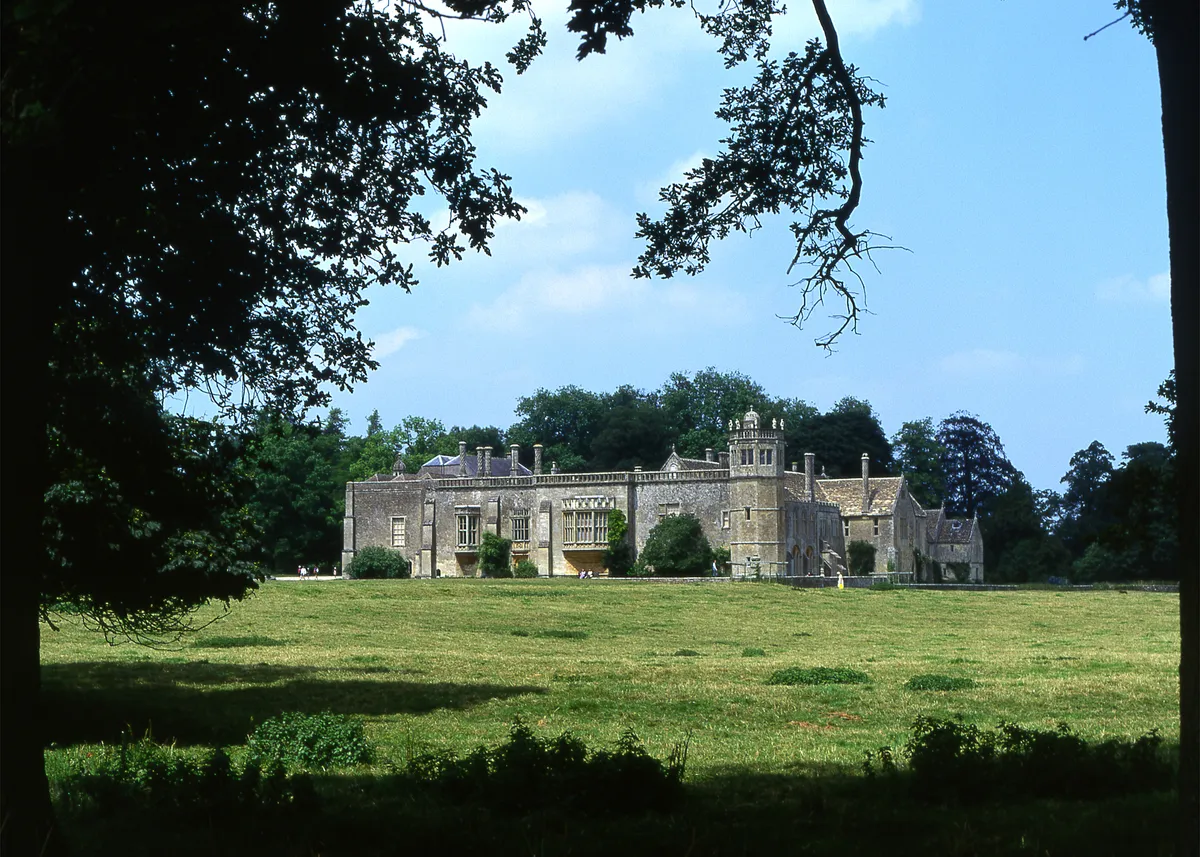
Founded in 1232, Lacock Abbey in Wiltshire was originally a medieval nunnery, then a family home, before achieving fame as a film set. Fans will recognise the Warming Room as Professor Quirrell’s classroom – a 500-year-old cauldron takes centre stage there now – and the Sacristy, where the intimidating Professor Snape teaches Potions in Harry Potter and the Philosopher's Stone. Like any self-respecting grand building, its ornate cloisters also make an appearance as Hogwarts corridors.
The bittersweet scene in which Harry finds the Mirror of Erise in Harry Potter and the Philosopher's Stone was filmed in Lacock Abbey's Chapter House, where nuns would once gather every morning. This again appears as the Revision Room in Harry Potter and the Chamber of Secrets.
The Forest of Dean, Gloucestershire
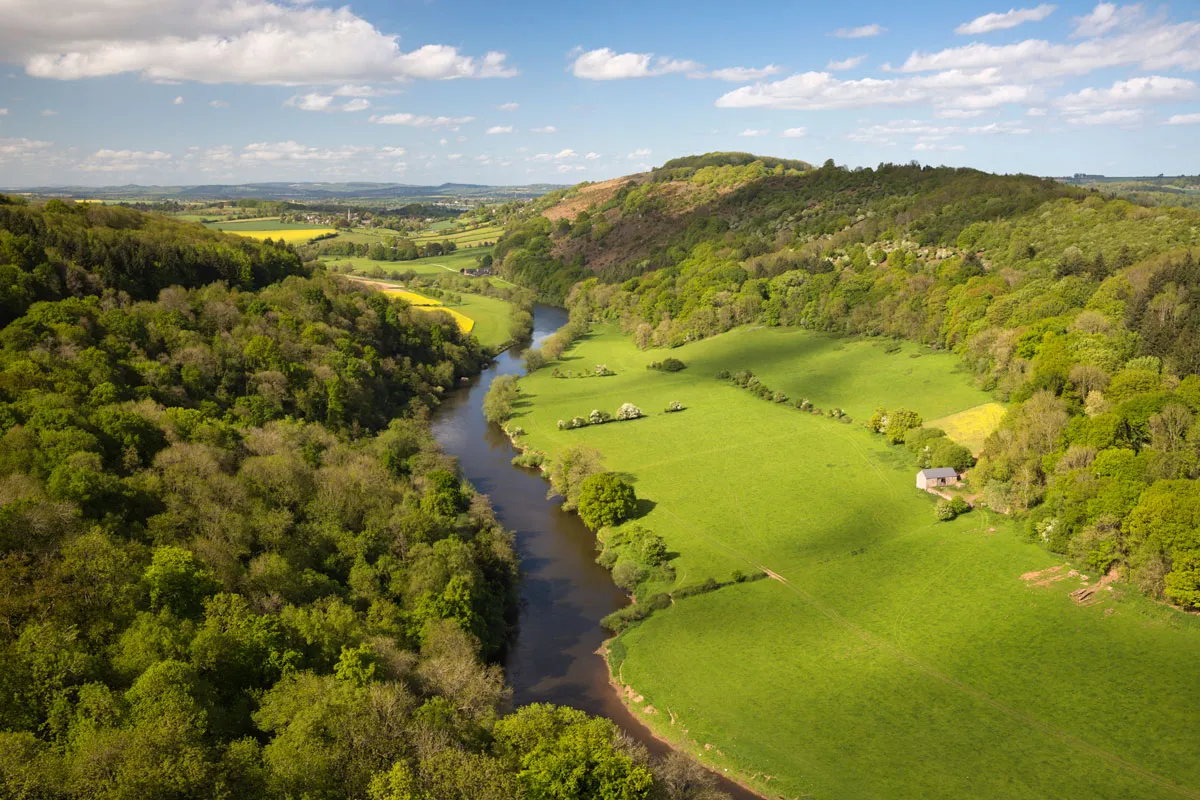
In Harry Potter and the Deathly Hallows, Harry and Hermione apparate to the Forest of Dean, which Hermione recognises from childhood camping holidays. This frosty, melancholic scene, featuring a beautiful wintry shot of the Wye, was filmed at Coppett Hill, a nature reserve near Goodrich. As a teen, JK Rowling lived in Tutshill on the edge of the forest and the area inspired elements of the novels - in the books, the Tutshill Tornadoes are a Quidditch team, and Professor Snape is said to have been inspired by Rowling's former chemistry teacher at Wyedean Comprehensive in Chepstow.
Gloucester Cathedral, Gloucestershire
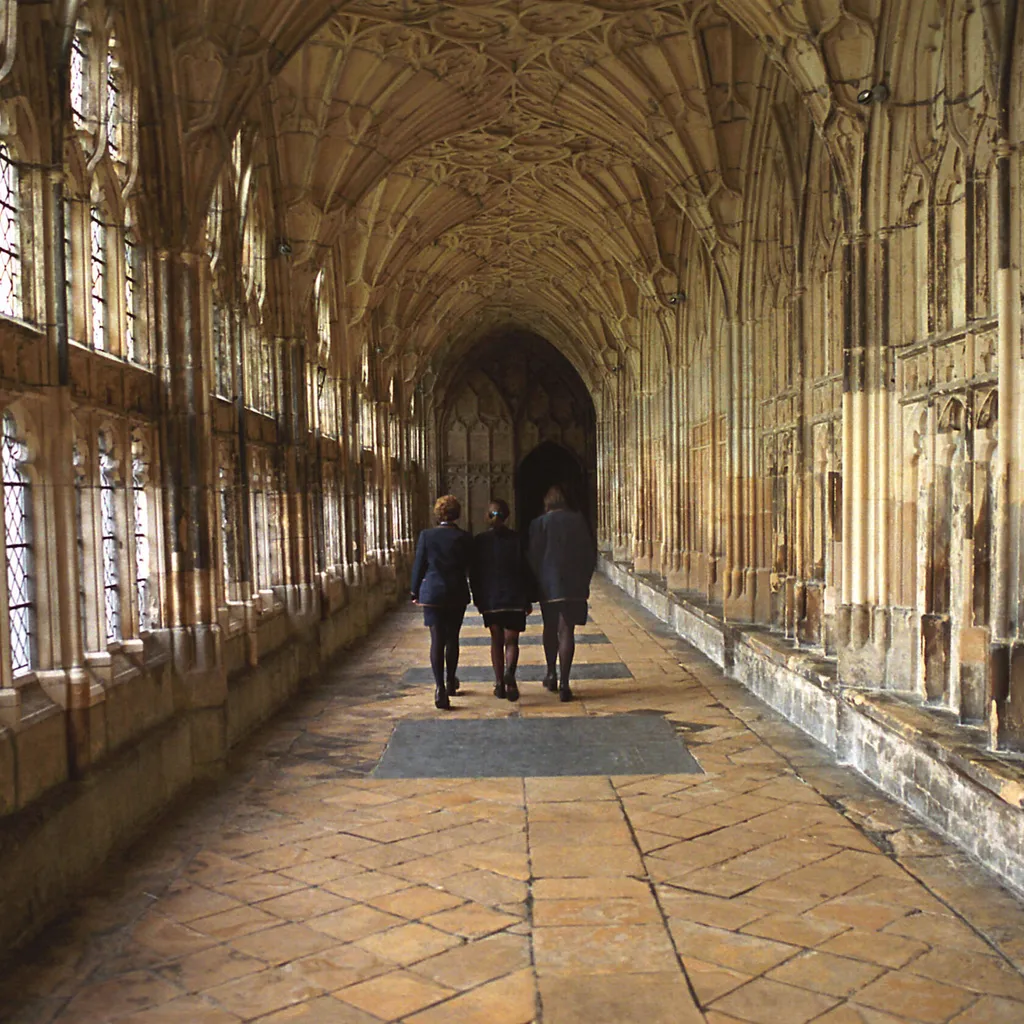
Having weathered 1,300 years of history, Gloucester Cathedral has a grandeur that befits the mighty Hogwarts School of Witchcraft and Wizardry. Founded in 678 by Prince Osric, the cathedral developed its palatial presence under the eye of its medieval abbot Serlo, who governed from 1072 to his death in 1104.
In Harry Potter and the Philosopher's Stone, Gloucester's South Corridor make its debut as the corridors of Hogwarts, as the young wizards are led into the school by Professor McGonagall after arriving on the Hogwarts Express. The East Corridor of the cathedral subsequently features when Moaning Myrtle floods the girls' bathroom in Chamber of Secrets, while the Lavatorium - the oldest in the world, dontcha know - is where Harry and Ron hide from the troll in the same film.
Alnwick Castle, Northumberland
One of the largest inhabited castles in the UK, Alnwick Castle stands in as Hogwarts during Harry’s first broomstick lesson. Zoe Wanamaker leads the young cast in a flying tutorial at the Outer Bailey, which is also the site of Harry's first Quidditch lesson in Harry Potter and the Philosopher's Stone. Visitors can hop on a Nimbus 2000 in the same spot that the young wizard first takes off.
Durham Cathedral, County Durham
Construction of the Norman cathedral began in 1083, and its majesty continues to astound visitors today. Unsurprisingly, it makes scene-stealing several appearances in the Harry Potter films.
The Chapter House becomes the classroom setting for Professor McGonagall's transfiguration lessons. The Cloisters stand in for corridors of Hogwarts, as the student wizards scurry between classes, and the memorable scene in which Dobby the house elf is freed was filmed on a set modelled almost identically on Durham Cathedral's cloisters.
You'll recognise the Cloister Garth – a quadrangle of grass – from the magical, snowy scene where Harry releases Hedwig the owl in Harry Potter and the Sorceror's Stone, and as the spot where Ron Weasley, rather less charmingly, burps up slugs in Harry Potter and the Chamber of Secrets.
Durham Cathedral is open Monday to Saturday 10am - 4pm and Sundays 12noon - 4pm.
Freshwater West beach, Pembrokeshire
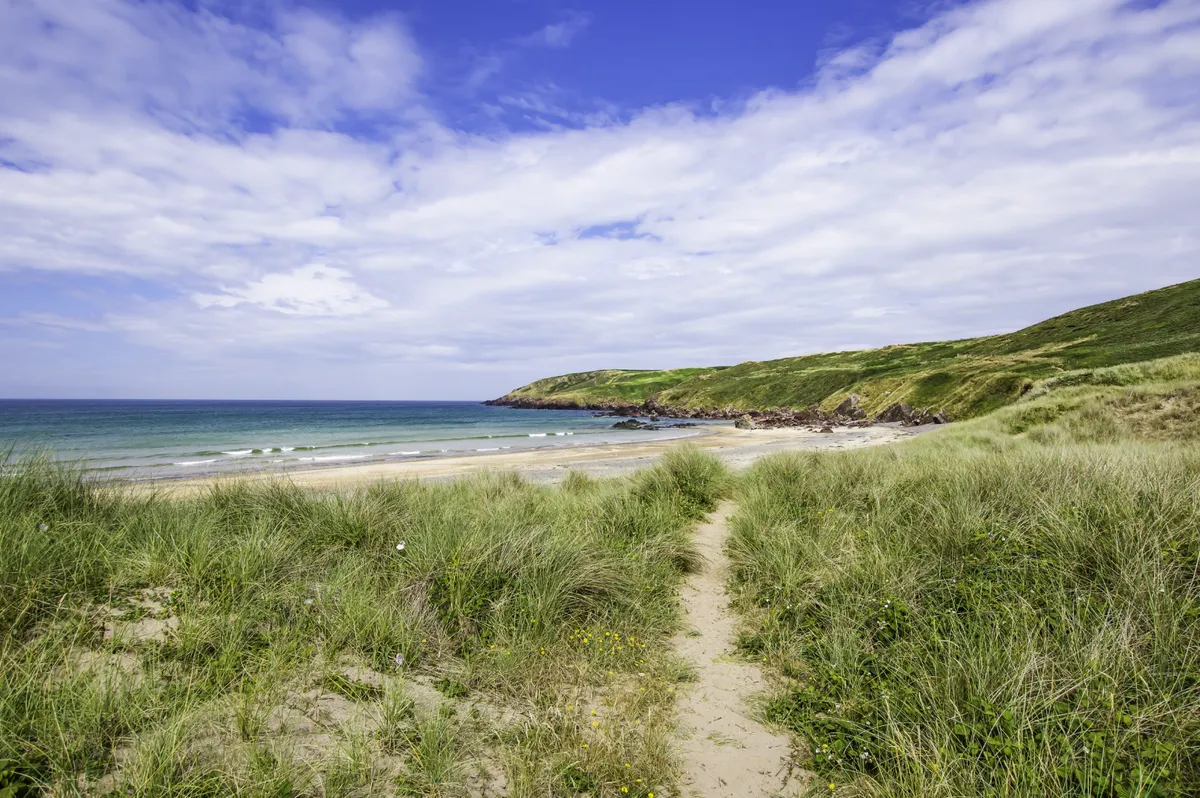
One of Wales’ top surfing spots, Freshwater West in Pembrokeshire features in both of the final Harry Potter films. The safe house Shell Cottage was built here, with a roof made of large scallop shells, and dear Dobby the house-elf is buried on these shores in Harry Potter and the Deathly Hallows Part I. This sad scene has caused some issues, as heartbroken fans come to pay tribute to little elf, leaving an excess of socks and painted pebbles and inadvertently threatening marine wildlife.
Glencoe, Argyll
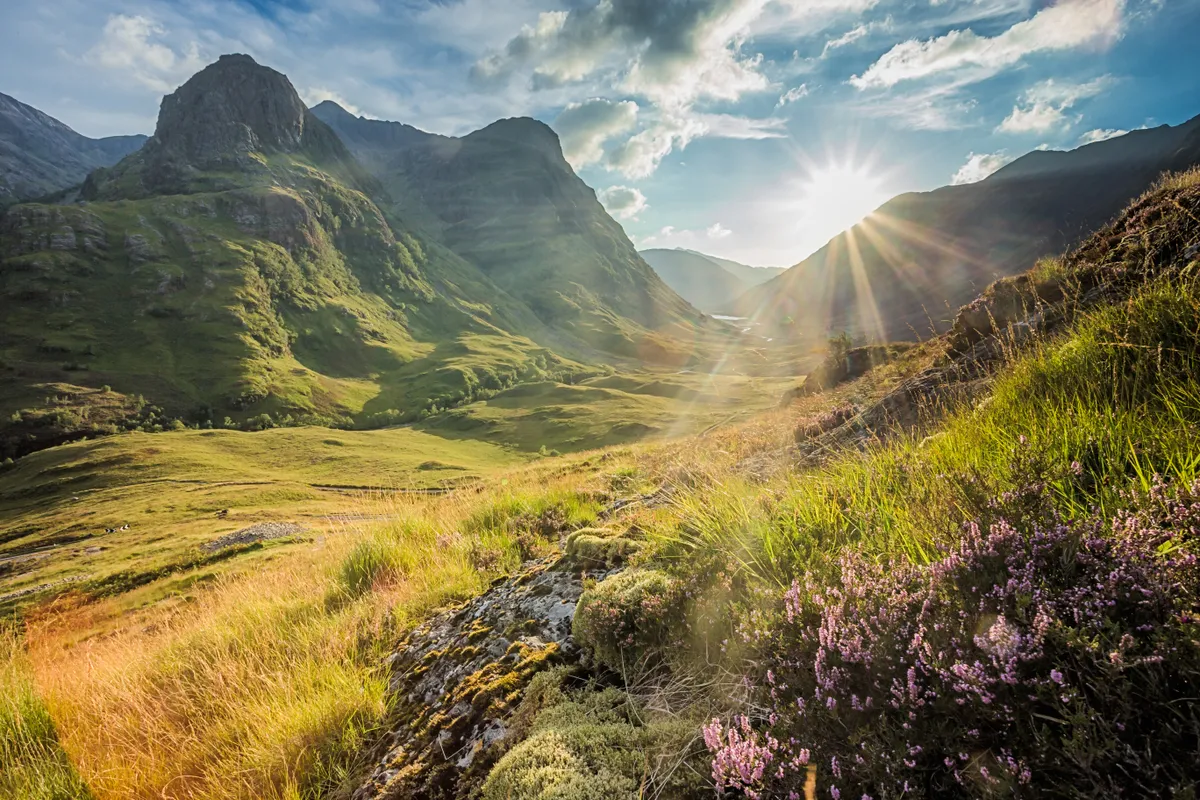
The epic landscape of Glencoe, a sweeping mountain terrain born of ancient volcanic activity, regularly features in the wizarding films. Hagrid's Hut, a fairytale shack complete with pumpkin patch and smoking chimney, was built at Clachaig Gully for three Harry Potter films.
In Harry Potter and the Prisoner of Azkaban, the landscape appears to dramatic effect in the scene in which the Golden Trio rescue Buckbeak. Hagrid's Hut also appears in Order of the Phoenix, before Harry meets the thestrals and when Umbridge fires Hagrid, and in The Half-Blood Prince, as Harry and Hagrid bid farewell to Aragog. Although the set has subsequently been removed, you can still drink in the area's dramatic beauty - and enjoy a drink at the Clachaig Inn, which is just over the road from the filming location.
Loch Arkaig, Inverness-shire
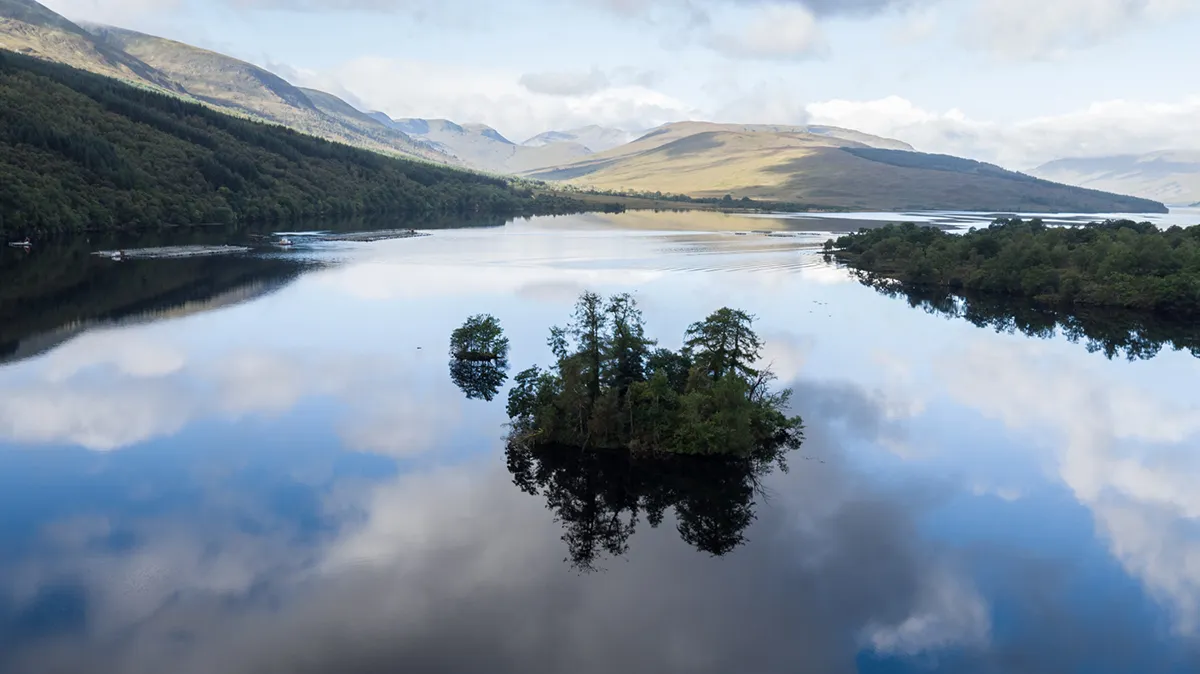
Remember when Harry, Ron and Hermione escape on a Ukrainian Ironbelly after raiding Gringotts Bank and plunge into a spectacular and vast body of water? You know, in Harry Potter and the Deathy Hallows Part 2? That's Loch Arkaig, with its beautiful Scots pine forest. Not a bad place to land. Probably a bit chilly, though.
Malham Cove
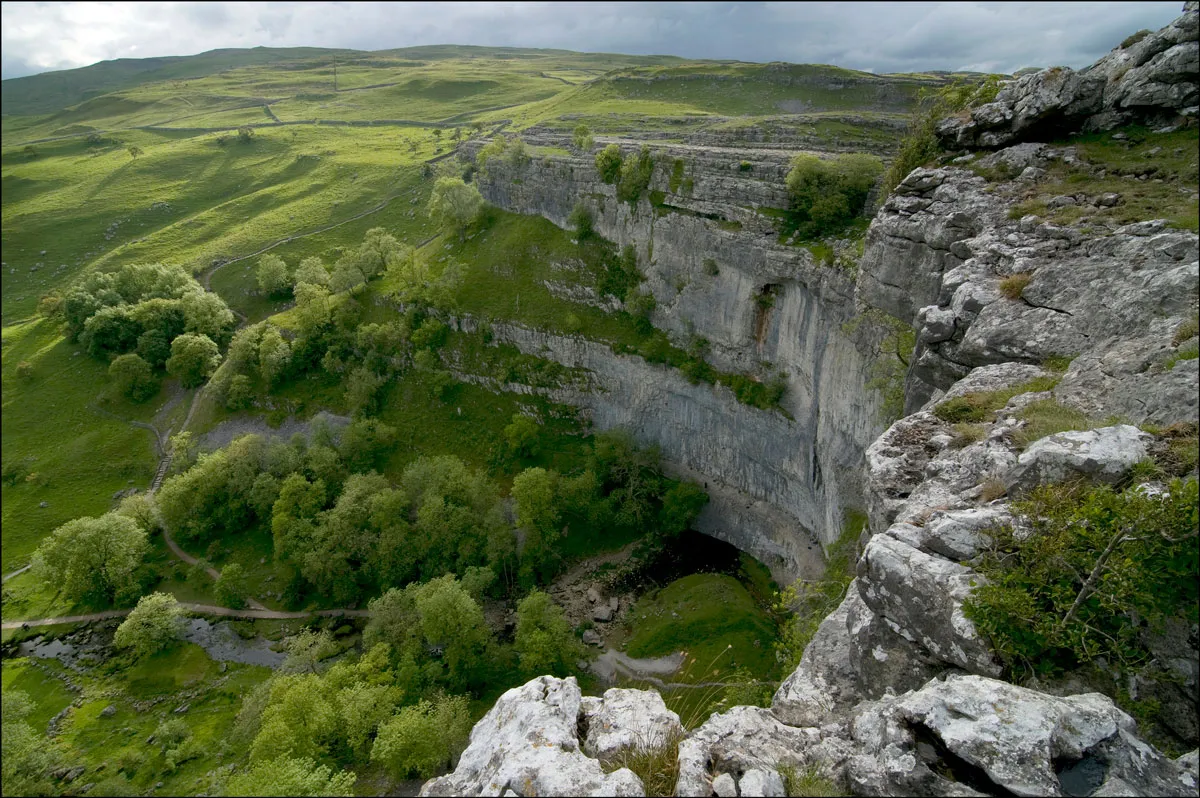
Malham Cove does drama well. This huge limestone amphitheatre of vertical cliff, reaching 80 metres in height, is topped by a spectacular limestone pavement - 300 metres of cobbled white slabs stretching towards the vertical drop. It makes a suitably awe-inspiring setting for the scene in Harry Potter and the Deathly Hallows in which Harry and Hermione camp out in hiding from Voldemort, and discuss their impending visit to Godric's Hollow.
Explore Malham Cove on this stunning five-mile walk.
Lavenham, Suffolk
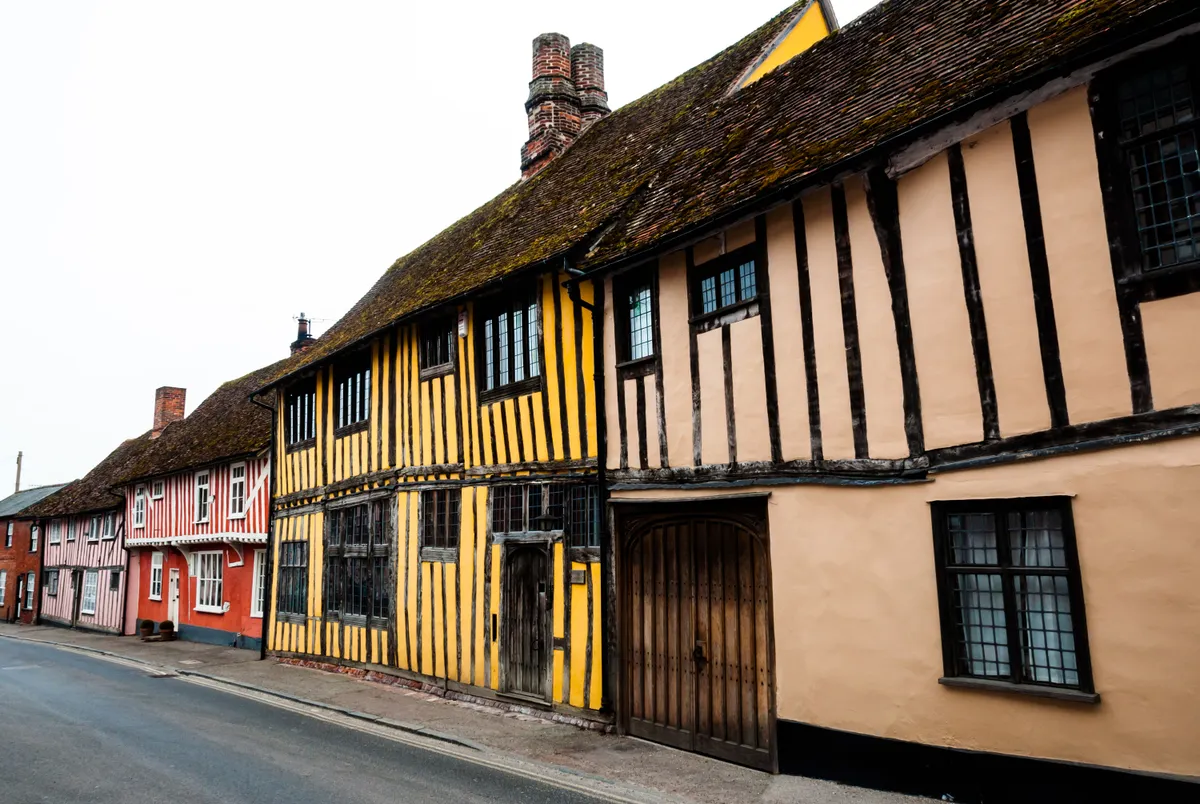
The delightfully higgledy-piggledy Suffolk village of Lavenham transforms into Godric's Hollow in Harry Potter and the Deathly Hallows Part I (2010).
This timber-framed 16th-century village was selected as a settlement famous in wizarding legend - the birthplace of Godric Gryffindor and the site where Voldermort is first defeated, leaving a baby Harry with his distinctive scar.
It is also home to Bathilda Bathurst, the Dumbledore family and Harry Potter's parents when they were in hiding. The crew visited in 2010 but, surprisingly, the cast never filmed here - the footage from Lavenham was blended with studio-recorded performances through the magic of CGI. Hey presto!
Discover where some of your other favourite films and television programmes have been filmed
Best romantic UK film locations to stay in
